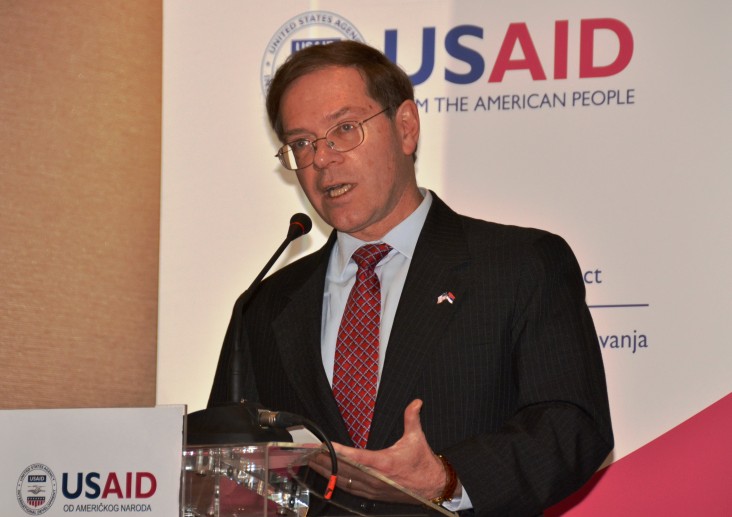
For Immediate Release
Belgrade, March 2013 – The "shadow economy," in which businesses are avoiding taxes and skirting regulations, has decreased less in Serbia than in 11 Central and Eastern European countries, according to the most comprehensive study of its kind to be conducted in Serbia during the past 15 years.
Serbia's shadow economy remains a serious economic and political challenge, according to the authors of the study, the U.S. Agency for International Development (USAID) and the Foundation for the Advancement of Economics (FREN), who found that Serbia's shadow economy contracted a mere three percent from 33.2 percent of GDP in 2001 to 30.1 percent in 2010.
“The shadow economy is one of the greatest challenges facing the Serbian economy," said Professor Friedrich Schneider, a researcher for the USAID Business Enabling Project. "Its consequences are manifest in tax evasion, market distortions, unfair competition, and inefficient resource allocation. In many transition countries, Serbia included, the shadow economy is a major obstacle to the development of a strong corporate sector and a functioning market economy.”
More than 85 percent of the businesses surveyed said there were companies operating in their sector in the shadow economy, making it difficult for them to compete. New start-ups, construction firms, entrepreneurs, and companies in Central Serbia were more likely to engage in the shadow economy, according to Professor Gorana Krstic, another author of the study.
"The economic benefit of reducing shadow activity is clear," said Lee Litzenberger, the Deputy Chief of Mission at the U.S. Embassy. "The study estimates, for example, that reducing shadow activity could increase tax revenues in Serbia by about 1 percent of the Gross Domestic Product, or by 33 billion dinars, within the next three years."
The study makes numerous recommendations to counter the shadow economy, clamp down on tax evaders, reform the system of quasi-fiscal charges, and to reduce tax-compliance costs. It also suggests ways bolster Serbia's financial sector and its business environment.
"It provides further impetus for integrating many reforms that the government has already identified, such as those relating to the labor law, access to finance, tax policy, inspections, and construction permits," said Litzenberger. "It gives context to why those reforms are important and supports the case that doing nothing is a poor option."







Comment
Make a general inquiry or suggest an improvement.